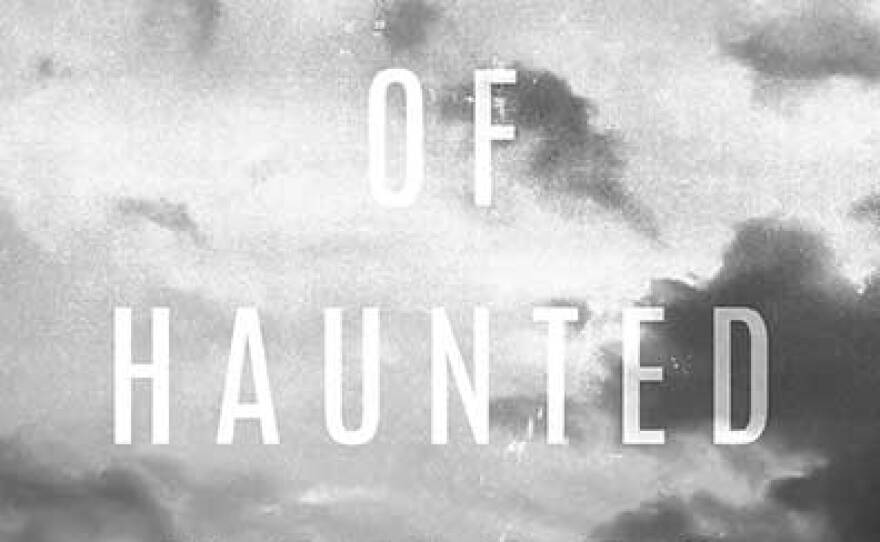San Diegan Adam O. Davis' new book of poetry, "Index of Haunted Houses," reads more like a seamless thing than a collection of disparate poems, and certain words (and ghosts) feel like characters pulled all the way through the book.
It starts with a sweet, nostalgic summons: the voices of the Bell Telephone System operators. Davis said that he wanted the three women operators to become something of a Greek chorus throughout the book. But the poetry doesn't sit tidy and quaint for long.

These poems — each almost like a scene or a strange, Lynchian jump into or out of time — may not be quaint, but they're not terrifying. And David Lynch's kaleidoscopic toying with time, place and reality inspired the strangeness in Davis' poems.
Davis, who teaches English and poetry at the Bishop's School and directs their visiting poetry series, spent over a decade working on this collection, but his love for hauntings started as a child. "I always loved ghost stories as a kid," Davis said. "That eerie feeling you get in abandoned places."
It's perhaps the universal mystery of abandoned places that resonates most in "Index of Haunted Houses." And for Davis, the mysteriousness isn't fear-based so much as it is founded in curiosity. In this way, technology ties these thoughts together: fear, ghosts, eeriness and timelessness. What the phone system did for us in prior generations was leave space for stories and mysteries that current modern technology doesn't allow.
"As a kid, growing up during the last gasp of analog telephone technology, I always found it so haunting when you would try to call someone and you found out the number had been disconnected," Davis said.
It marked the beginning of his interest in those telephone operator voices, but also, it's a story unique to a relatively small segment of western history: post-telephone, but pre-internet.
"Growing up before the internet allows you to experience a kind of longing and yearning that digital culture has erased on some level. I think there was something for me that was really important about wondering where people went, or wondering what else might be out there. And in having to wonder about that, not having any answers available, that's where creativity took over, and that's where imagination took over," said Davis.
The book feels, at times, like an American road trip story. And sometimes it's a road trip through time, too — a multidimensional displacement. In one piece, we're in 1873. In another, 1980. These dated pieces often cull real history and real hauntings, exposed in the book's notes at the end. And the less specifically anchored pieces have a timelessness to them, for better or for worse. ("Forgive us, history. / We orphan / everything / we touch." — from "Pacific Americana.")
Davis' calculated use of language and form means that the varied scenes feel part of each other. We feel the literal word "bones" in one poem echoed by the bones in others. Desert cities, radios, coins used as metaphors, granaries and more come up not enough to be redundant, but often enough to feel like a sort of mantra. The mysteries in Davis' work are tail lights on the sides of highways in Ohio and the oilfields of Los Angeles, they're beasts in Nebraska, granaries in a small town or ghosts in unnamed cities.
"Stetson in Retrograde" feels like the book's intermission: a long, 6-part densely worded poem which contrasts with the rest of the collection's brief, sparse and white space-heavy 1-2 pagers. The poem is a lulling cycle of sentence structure and repetition, playing on words and rhyming.
And in "Roswell, 1947," Davis rearranges subjects and verbs to repeat stanzas as warped shadows of the first. Each makes sense in a way that only deteriorates the prior arrangement of words — there's that David Lynch dream-state influence again.

The book also includes photography — hyper-exposed black and white photos of abandoned buildings and ancient roadside attractions across America. And to push the book into one more medium, Davis developed a hotline, like a phone messaging system. Much like being greeted by his chorus of phone operator voices, callers can cycle through an options system, listening to poetry or recording their own messages. (Try it: 619-329-5757.)
"Index of Haunted Houses" is a brisk read, not so much unsettling as it is restless. Like ghosts and summer-sticky road trips alike, Davis' work pairs a timeless and creepy America with hauntings, longing and curiosity.
Adam O. Davis discusses "Index of Haunted Houses" with Kazim Ali, livestreamed through Warwick's Books, tonight at 4 p.m. Additionally, on Sept. 18 at 3:30 p.m., Davis will discuss his book virtually with Pittsburgh's White Whale Bookstore







